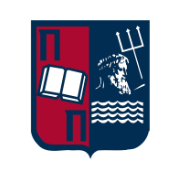Ιntelligent Agents and Multiagent Systems |
|
|---|---|
| Professors | George Vouros |
| Course category | CSM/CAS |
| Course ID | DS-520 |
| Credits | 5 |
| Lecture hours | 4 hours |
| Lab hours | - |
| Digital resources | View on Aristarchus (Open e-Class) |
Learning Outcomes
Upon successful completion of this course, students should be able to
Know principles, paradigmatic architectures and methods for developing single agent and multi agent systems, have a critical and informed view of strengths and limitations regarding agents and multi agent systems, towards designing and delivering such systems.
Specifically, students know and acquire the abilities to develop
- Architectures of single and multi-agent systems
- Methods for agents coordination, collaboration and competition in specific settings and paradigmatic environments and problems
- Agents’ communication methods and protocols
Via the critical view of agents technology and experience in developing such systems.
Course Contents
- Agents: Principles, architectures and application examples
- Deliberation vs Reaction: Architectures
- Mental attitudes, states and their representation
- Multi-agent Systems: Interactions and dependencies
- Multiagent organizations and communication
- Cooperation and collaboration
- Agents communication
- The JASON framework and Agent Speak language
Recommended Readings
- Michael Wooldridge, Introduction to MultiAgent Systems, 2008.
- Yoav Shoham, Kevin Leyton-Brown Multiagent Systems: Algorithmic, Game-Theoretic, and Logical Foundations, Cambridge University Press, 2009.
- Gerhard Weiss, Multiagent Systems: A Modern Approach to Distributed Artificial Intelligence, MIT Press, 2000.
- John Miller Scott Page, Complex Adaptive Systems: An Introduction to Computational Models of Social Life (Princeton Studies in Complexity), Princeton University Press, 2007.
- David Easley, Jon Kleinberg, Networks, Crowds, and Markets: Reasoning About a Highly Connected World, Cambridge University Press 2010.
- JASON, https://github.com/jason-lang/jason

